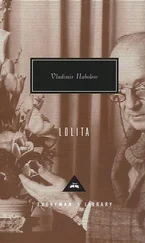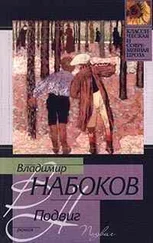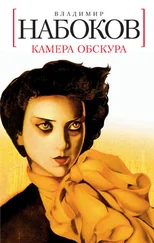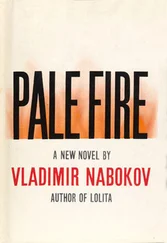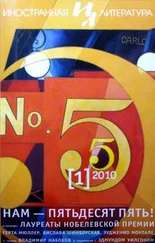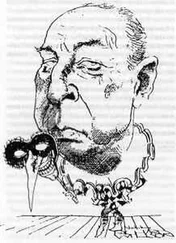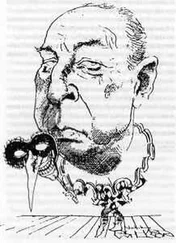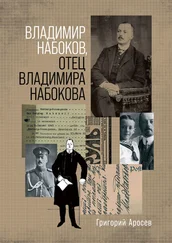Владимир Набоков - Pale Fire
Здесь есть возможность читать онлайн «Владимир Набоков - Pale Fire» весь текст электронной книги совершенно бесплатно (целиком полную версию без сокращений). В некоторых случаях можно слушать аудио, скачать через торрент в формате fb2 и присутствует краткое содержание. Жанр: Классическая проза, на английском языке. Описание произведения, (предисловие) а так же отзывы посетителей доступны на портале библиотеки ЛибКат.
- Название:Pale Fire
- Автор:
- Жанр:
- Год:неизвестен
- ISBN:нет данных
- Рейтинг книги:4 / 5. Голосов: 1
-
Избранное:Добавить в избранное
- Отзывы:
-
Ваша оценка:
- 80
- 1
- 2
- 3
- 4
- 5
Pale Fire: краткое содержание, описание и аннотация
Предлагаем к чтению аннотацию, описание, краткое содержание или предисловие (зависит от того, что написал сам автор книги «Pale Fire»). Если вы не нашли необходимую информацию о книге — напишите в комментариях, мы постараемся отыскать её.
Pale Fire — читать онлайн бесплатно полную книгу (весь текст) целиком
Ниже представлен текст книги, разбитый по страницам. Система сохранения места последней прочитанной страницы, позволяет с удобством читать онлайн бесплатно книгу «Pale Fire», без необходимости каждый раз заново искать на чём Вы остановились. Поставьте закладку, и сможете в любой момент перейти на страницу, на которой закончили чтение.
Интервал:
Закладка:
Not being a mariner or a fugitive king, he promptly got lost and after vainly progressing through a labyrinth of stacks, asked about the Icelandic Collection of a stern-looking mother librarian who was checking cards in a steel cabinet on a landing. Her slow and detailed directions promptly led him back to the main desk.
"Please, I cannot find," he said, slowly shaking his head.
"Didn't you -" he girl began, and suddenly pointed up: "Oh, there he is!"
Along the open gallery that ran above the hall, parallel to its short side, a tall bearded man was crossing over at a military quick march from east to west. He vanished behind a bookcase but not before Gradus had recognized the great rugged frame, the erect carriage, the high-bridged nose, the straight brow, and the energetic arm swing, of Charles Xavier the Beloved.
Our pursuer made for the nearest stairs - and soon found himself among the bewitched hush of Rare Books. The room was beautiful and had no doors; in fact, some moments passed before he could discover the draped entrance he himself had just used. The awful perplexities of his quest blending with the renewal of impossible pangs in his belly, he dashed back - ran three steps down and nine steps up, and burst into a circular room where a bald-headed suntanned professor in a Hawaiian shirt sat at a round table reading with an ironic expression on his face a Russian book. He paid no attention to Gradus who traversed the room, stepped over a fat little white dog without awakening it, clattered down a helical staircase and found himself in Vault P. Here, a well-lit, pipe-lined, white-washed passage led hint to the sudden paradise of a water closet for plumbers or lost scholars where, cursing, he hurriedly transferred his automatic from its precarious dangle-pouch to his coat and relieved himself of another portion of the liquid hell inside him. He started to climb up again, and noticed in the temple light of the stacks an employee, a slim Hindu boy, with a call card in his hand. I had never spoken to that lad but had felt more than once his blue-brown gaze upon me, and no doubt my academic pseudonym was familiar to him but some sensitive cell in him, some chord of intuition, reacted to the harshness of the killer's interrogation and, as if protecting me from a cloudy danger, he smiled and said: "I do not know him, sir."
Gradus returned to the Main Desk.
"Too bad," said the girl, "I just saw him leave."
"Bozhe moy, Bozhe moy," muttered Gradus, who sometimes at moments of stress used Russian ejaculations.
"You'll find him in the directory," she said pushing it towards him, and dismissing the sick man's existence to attend to the wants of Mr. Gerald Emerald who was taking out a fat bestseller in a cellophane jacket.
Moaning and shifting from one foot to the other, Gradus started leafing through the college directory but when he found the address, he was faced with the problem of getting there.
"Dulwich Road," he cried to the girl. "Near? Far? Very far, probably?"
"Are you by any chance Professor Pnin's new assistant?" asked Emerald.
"No," said the girl. "This man is looking for Dr. Kinbote, I think. You are looking for Dr. Kinbote, aren't you?"
"Yes, and I can't any more," said Gradus.
"I thought so," said the girl. "Doesn't he live somewhere near Mr. Shade, Gerry?"
"Oh, definitely," said Gerry, and turned to the killer: "I can drive you there if you like. It is on my way."
Did they talk in the car, these two characters, the man in green and the man in brown? Who can say? They did not. After all, the drive took only a few minutes (it took me, at the wheel of my powerful Kramler, four and a half).
"I think I'll drop you here," said Mr. Emerald. "It's that house up there."
One finds it hard to decide what Gradus alias Grey wanted more at that minute: discharge his gun or rid himself of the inexhaustible lava in his bowels. As he began hurriedly fumbling at the car door, unfastidious Emerald leaned, close to him, across him, almost merging with him, to help him open it - and then, slamming it shut again, whizzed on to some tryst in the valley. My reader will, I hope, appreciate all the minute particulars I have taken such trouble to present to him after a long talk I had with the killer; he will appreciate them even more if I tell him that, according to the legend spread later by the police, Jack Grey had been given a lift, all the way from Roanoke, or somewhere, by a lonesome trucker! One can only hope that an impartial search will turn up the trilby forgotten in the Library - or in Mr. Emerald's car.
Line 957: Night Rote
I remember one little poem from Night Rote (meaning "the nocturnal sound of the sea") that happened to be my first contact with the American poet Shade. A young lecturer on American Literature, a brilliant and charming boy from Boston, showed me that slim and lovely volume in Onhava, in my student days. The following lines opening this poem, which is entitled "Art," pleased me by their catchy lilt and jarred upon the religious sentiments instilled in me by our very "high" Zemblan church.
From mammoth hunts and Odysseys And Oriental charms To the Italian goddesses With Flemish babes in arms.
Line 962: Help me, Will. Pale Fire.
Paraphrased, this evidently means: Let me look in Shakespeare for something I might use for a title. And the find is "pale fire." But in which of the Bard's works did our poet cull it? My readers must make their own research. All I have with me is a tiny vest pocket edition of Timon of Athens - in Zemblan! It certainly contains nothing that could be regarded as an equivalent of "pale fire" (if it had, my luck would have been a statistical monster).
English was not taught in Zembla before Mr. Campbell's time. Conmal mastered it all by himself (mainly by learning a lexicon by heart) as a young man, around 1880, when not the verbal inferno but a quiet military career seemed to open before him, and his first work (the translation of Shakespeare's Sonnets) was the outcome of a bet with a fellow officer. He exchanged his frogged uniform for a scholar's dressing gown and tackled The Tempest. A slow worker, he needed half a century to translate the works of him whom he called "dze Bart," in their entirety. After this, in 1930, he went on to Milton and other poets, steadily drilling through the ages, and had just completed Kipling's "The Rhyme of the Three Sealers" ("Now this is the Law of the Muscovite that he proves with shot and steel") when he fell ill and soon expired under his splendid painted bed ceil with its reproductions of Altamira animals, his last words in his last delirium being "Comment dit-on 'mourir' en anglais?" - a beautiful and touching end.
It is easy to sneer at Conmal's faults. They are the naive failings of a great pioneer. He lived too much in his library, too little among boys and youths. Writers should see the world, pluck its figs and peaches, and not keep constantly meditating in a tower of yellow ivory - which was also John Shade's mistake, in a way.
We should not forget that when Conmal began his stupendous task no English author was available in Zemblan except Jane de Faun, a lady novelist in ten volumes whose works, strangely enough, are unknown in England, and some fragments of Byron translated from French versions.
A large, sluggish man with no passions save poetry, he seldom moved from his warm castle and its fifty thousand crested books, and had been known to spend two years in bed reading and writing after which, much refreshed, he went for the first and only time to London, but the weather was foggy, and he could not understand the language, and so went back to bed for another year.
English being Conmal's prerogative, his Shakspere remained invulnerable throughout the greater part of his long life. The venerable Duke was famed for the nobility of his work; few dared question its fidelity. Personally, I had never the heart to check it. One callous Academician who did, lost his seat in result and was severely reprimanded by Conmal in an extraordinary sonnet composed directly in colorful, if not quite correct, English, beginning: I am not slave! Let be my critic slave.
Читать дальшеИнтервал:
Закладка:
Похожие книги на «Pale Fire»
Представляем Вашему вниманию похожие книги на «Pale Fire» списком для выбора. Мы отобрали схожую по названию и смыслу литературу в надежде предоставить читателям больше вариантов отыскать новые, интересные, ещё непрочитанные произведения.
Обсуждение, отзывы о книге «Pale Fire» и просто собственные мнения читателей. Оставьте ваши комментарии, напишите, что Вы думаете о произведении, его смысле или главных героях. Укажите что конкретно понравилось, а что нет, и почему Вы так считаете.

